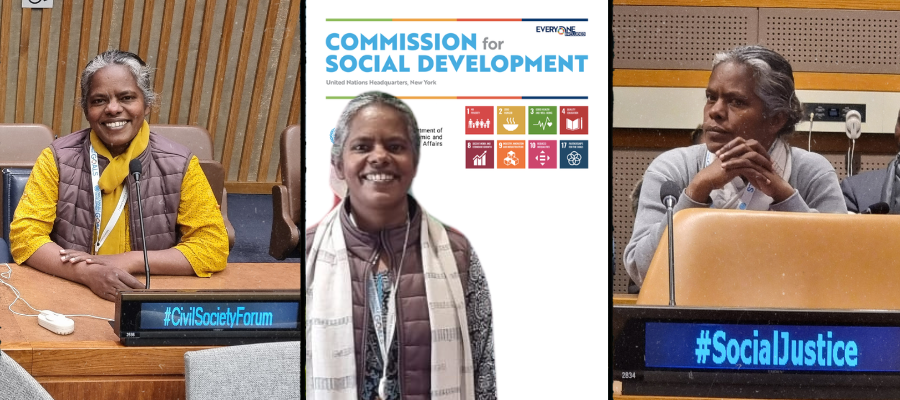
The Commission for Social Development concluded its sixty-second session by approving and forwarding three resolutions and one draft decision to the Economic and Social Council for adoption. Among these, a notable resolution focused on recognizing and valuing the unacknowledged, unpaid work of caregivers. The approved draft resolution titled “Promoting care and support systems for social development” urges states to create enabling environments for promoting care and support systems. It emphasizes the importance of recognizing, redistributing, and valuing care work among individuals, families, communities, the private sector, and states. The resolution underscores the essential role of the care economy in achieving gender equality and empowering all women and girls.
Representatives from various countries highlighted the significance of the resolution, noting the invisibility and undervaluation of unpaid caregiving and its impact on social and economic policies. Despite some concerns and explanations of position, the resolution was approved without a vote. Additionally, the Commission approved a draft decision on the priority theme of its sixty-third session, focusing on strengthening solidarity, social inclusion, and social cohesion to accelerate the delivery of commitments outlined in key social development declarations and the 2030 Agenda for Sustainable Development.
The session concluded with the election of the Chair and Vice-chairs for the sixty-third session, with Krzysztof Maria Szczerski (Poland) elected as Chair. The Commission also postponed the elections of remaining Bureau members, emphasizing the importance of solidarity in guiding successful economic and social transitions.
Throughout the session, discussions emphasized the need for reform in international financial architecture, fair agricultural trade, and supportive international frameworks. Looking ahead, the Commission aims to contribute to various upcoming forums and summits addressing social development and sustainable goals.
The NGO Committee on Social Development in which IBVM UN NGO is a member, is dedicated to raising awareness and holding discussions on social development issues taken up by the UN System and in particular by the UN Commission for Social Development. The committee holds a Civil Society Forum and other capacity-building and outreach events at the Commission. During this Forum, NGOs worldwide get an opportunity to learn about each other’s work, and to prepare for the Commission, including by working on position papers and interventions.
The Civil Society Declaration for the 62nd session of the Commission for Social Development highlights the fragility of the world due to structural inequalities, injustice, extreme poverty, hunger, discrimination, and various crises, including the COVID-19 pandemic. It emphasized the need for a renewed social contract that integrates social, economic, environmental, and political justice at national and international levels.
Key Priorities:
- Invest in Human Capital: Advocate for transformative social policies that prioritize human well-being and dignity. This includes a “whole society” approach, gender sensitivity, transparency, and the elimination of corruption in decision-making.
- Reform Global Financial Structures: Address global economic inequalities through a new financial architecture, overhaul of the global trade system, debt restructuring, and fiscal policies supporting the Sustainable Development Goals (SDGs).
- Ensure Equal Access to a Healthy Environment: Call for equal access to a healthy and safe environment, emphasizing the impact of climate change on public health, food security, and peace. Highlight the need for climate action and institutions to monitor and enforce environmental rights.
- Ensure Equality Before the Law: Advocate for equal protection and benefits under the law for all individuals, irrespective of gender, race, or ethnicity. Emphasize the unrealized rights enshrined in international law, including the right to development and political participation.
Call to Action:
The declaration concludes with a call to action for member states to include people with lived experiences in policy responses, ensure equal access to basic needs, establish human rights-based social protection systems, prioritize well-being over GDP in economic policy-making, extend debt relief, mainstream gender perspectives, recognize care as a societal responsibility, and advance Indigenous Peoples’ rights.
The declaration urges collaborative efforts in solidarity and partnership for a more equitable, inclusive, and just world. It echoes the Secretary-General’s call for a second World Social Summit in 2025, emphasizing the inclusion of marginalized and vulnerable populations in shaping solutions with a gender lens.
Author: Sr Smitha Muthu, cj, Nepal


